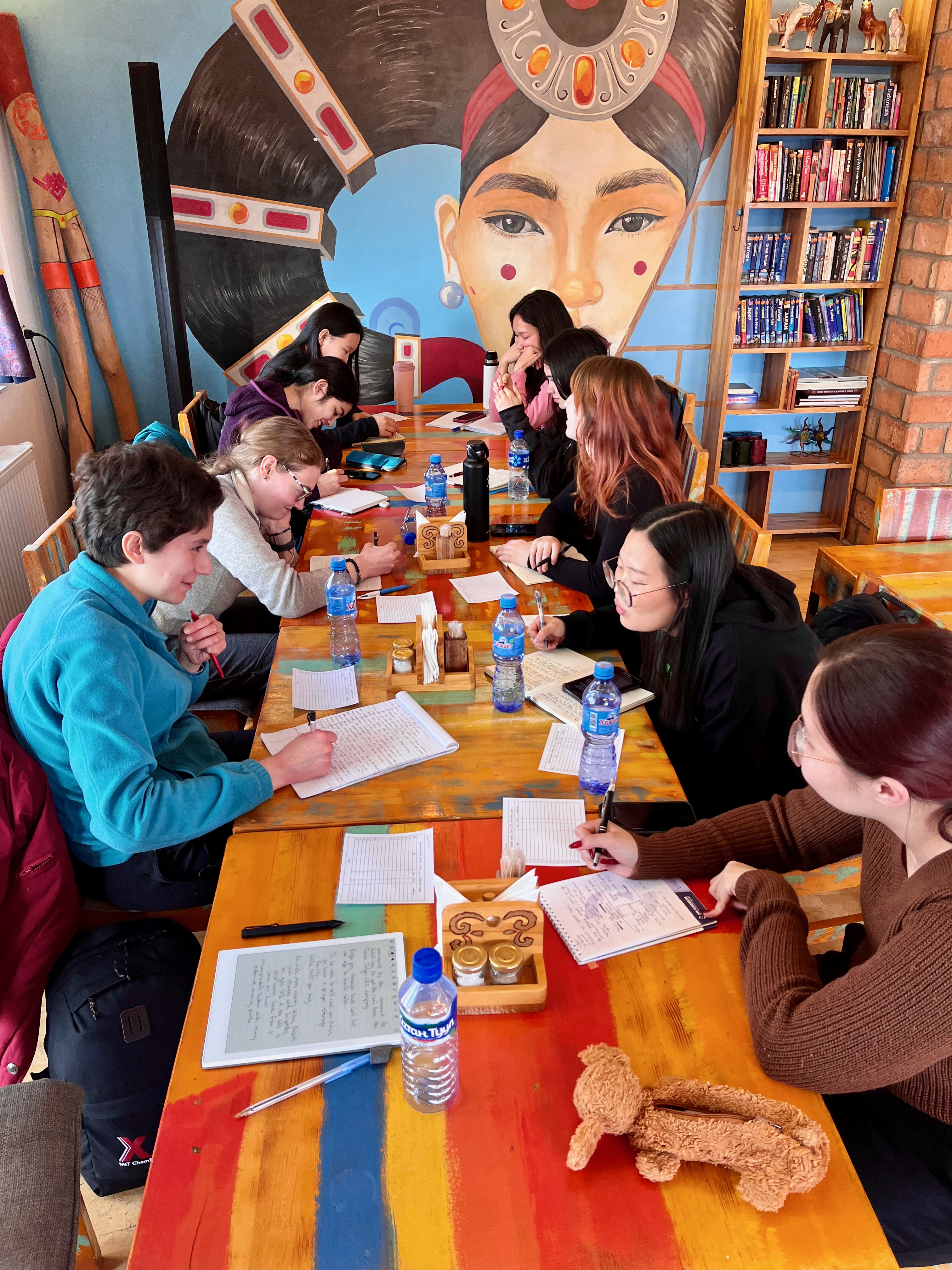Teaching
I am a fourth-generation educator and, like many members of my family, I am drawn to teaching because I genuinely enjoy working with students and getting to know them as people. What piques their curiosity? What challenges them? How do they think and learn? In what communities are they rooted and seek to serve? As an educator, I am intrigued by how knowledge - especially exposure to diverse systems of knowledge - affects our perceptions of ourselves in relation to other people, places, and times, thereby influencing our actions and broader commitments in the world.
I have taught an array of classes, from large introductory survey courses to small seminars and experiential field courses in Mongolia. In all my engagements with students, it is very important to me that they feel seen, heard, and valued as whole people. As such, I strive to create an inclusive, collaborative class community where there are opportunities for students to lead with their interests, contribute to course content, and apply coursework in ways that are meaningful to them, both personally and professionally.

